For many of us book lovers, there is no better way to get to know a culture than by exploring its literature.
If you’ve been a book addict for some time now, and have taken part in the occasional high school history class, you’ve probably already heard of Harry Mulisch and, obviously, Anne Frank.
Both are rock-solid pillars of Dutch culture and two of the first impressions the NL leave on internationals.
But if you’ve taken more than two steps on Dutch streets in the last few years, you’d know that this, in fact, does not feel like re-entering World War II or partaking in the Marxist struggle for the abolishment of the class system.
READ MORE | 11 movies about Dutch culture to watch
No, Dutch culture has, thanks to its internationality, vibrant student cities and liberal stance, outgrown those settings described in the Dutch classics.
So, whether you’re a native veteran-dutchie with an Albert Heijn bonuscaard and a collection of K3 CDs, or an NL newbie looking to get to know the culture: these are five Dutch authors that you might not have heard of yet and that slap equally as much in English as they do in Dutch.
1. Jaap Robben, Summer Brother
The first thought that came to mind when I was gifted Summer Brother was: this book will make me very sad and starting my summer with it was probably not my brightest moment. But lo and behold, I only have bright moments, because Summer Brother is grandiose.
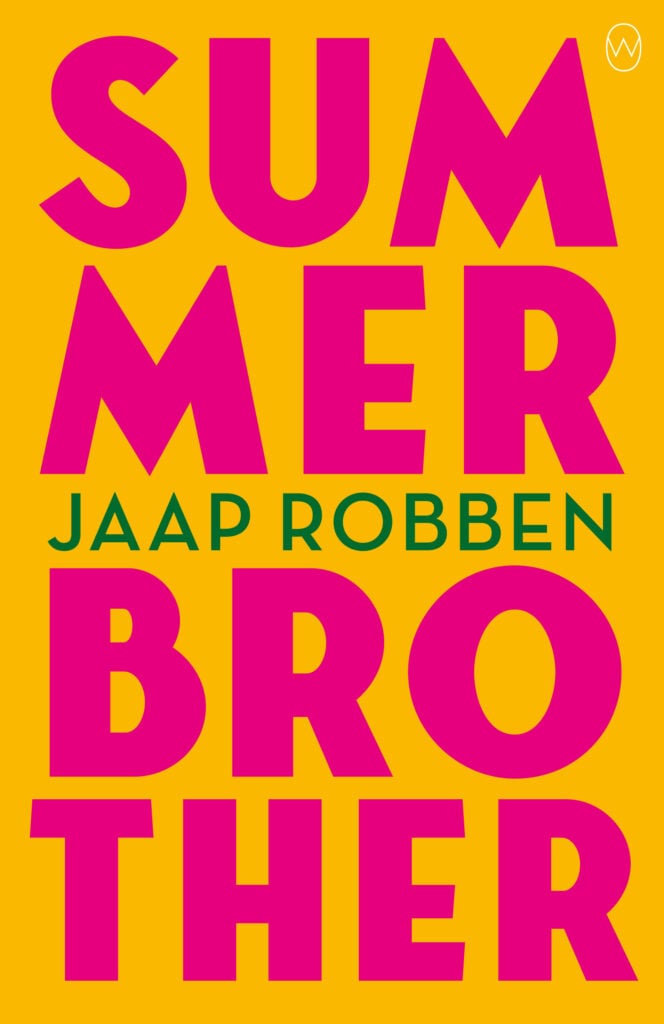
The plot — heavy but heartfelt
Robben tells the story of thirteen-year-old Brian, who lives in a dilapidated caravan in the middle of nowhere with his feckless divorcee father, Maurice.
Brian is left to look after his older brother, Lucien, who is physically and mentally disabled and, if not currently smashing bottles around, masturbates to relieve stress. We feel sympathy for all of the characters, especially when following Brian’s attempts to teach Lucien how to walk or change his diapers.
Robben is a playwright and it shows. His characterisations are fleshed out to a tea, his characters flashy (linguists, would you please look at this beautiful alliteration I just created), and his descriptions nuanced.
To name an example, Maurice’s hair smells of “threadbare carpets”, apparently. Go figure.
Why you should read it
Summer Brother was longlisted for the International Booker Prize in 2021. David Dorothy does an excellent job with the English translation, which lacks none of the warm, shrewd, tragic and insanely funny tropes Robben uses to celebrate empathy within the limitations of a dysfunctional family.
Summer Brother is an easy and accessible read, perfect to begin your summer with.
Peter Buwalda, Bonita Avenue
Bonita Avenue is a “hip family melodrama” and my absolute favourite on this list. Probably because I’m a GenZer born into a family of nine, but that’s beside the point.
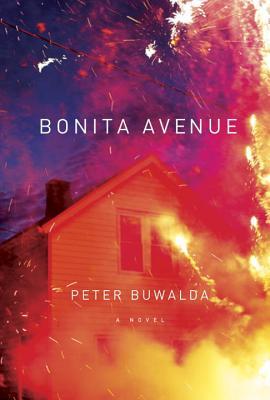
Buwalda’s storytelling is unlike anything I’ve ever read before. His very artful yet clear way of writing fends off any boredom that would usually come up within the first 100 pages of scene-setting.
The plot — a hip thriller set in a quaint Dutch setting
The novel is set in Enschede because that’s where crime happens. Just kidding, Enschede is a sweet, cosy municipality on the German border, worth a visit if you’re into modern cottagecore.
It did get mistaken for a German city during World War 2 and bombed though. Oh, and some fireworks destroyed half the city in the 2000s. So basically thriller material, and perfect for Buwalda’s story about the downfall of Siem Sigerius, a professor and politician with a love for the finer things in life.
He has two step-daughters, a successful son in law, and a perfectly crafted life. Or so it would seem.
Why you should read it
Bonita Avenue is a thriller through the pen of a virtuoso, with the smoothest ever translation by Jonathan Reeder.
If you want a summer read with a little bit of everything, or if you’re into any of the following niche interests, I’m talking blackmail, pornography, judo, explosions, jazz and jail (not necessarily in that order), Buwalda might be perfect for you.
It’s a hefty 500-pager though, so maybe don’t haul it to the beach.
Marieke Lucas Rijneveld, The Discomfort of Evening
Discomfort is the biggest understatement with regards to a title I have come across in a long time. Let’s paint a more accurate picture and call it “Pain, misery and distress throughout multiple everlasting and torturous evenings.”
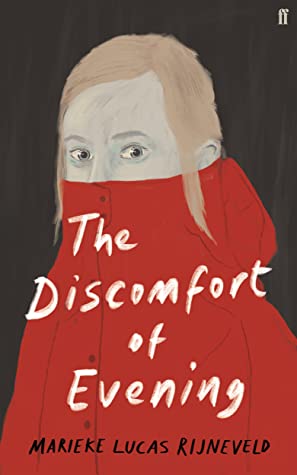
Of course, people love getting their feelings hurt by a book, meaning that you know this is a good one. In fact, the rest of the world knows this is a good one too because The Discomfort of Evening is the first Dutch book to receive the International Booker Prize, in 2020.
The plot — discomforting and brutally honest
Jas is a young girl growing up in an exceptionally strict Christian household. In a moment of childish rage, she wishes that her brother, who was allowed to go ice skating without her, would take her rabbit’s place.
Jas’ dairy-farming father has had his eye on the pet for dinner. To none of the readers’ surprise, said brother does not return from said skating trip.
Through the eyes of the little girl, we witness the family in mourning. The unique thing about Rijneveld’s writing (preserved through Michele Hutchinson’s apt translation) is the complete lack of euphemism and embellishment.
Why you should read it
If you were looking to be pushed really, really far out of your comfort zone anytime soon, and by that I mean uncomfortably close into obsessive erotic games, bizarre ritual attempts to invoke the dead, animal torture, or fantasies about God and redemption, you’ve come to the right place.
Rijneveld places the most private and gruesome parts of humanity under a magnifying glass for us. The result? It’s so shockingly honest that I’ve never been the same since reading the book.
And while this may sound like a journey you would never want to embark on, I promise, you will want to do it all over again by the end of the book.
Herman Koch, The Dinner
Now, Koch is a little more on the Dutch-literature-veteran side of things. He does have a few newer novels to explore once you get into him, but this obsession can only really happen once you’ve read The Dinner.
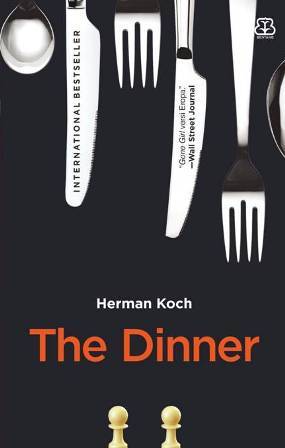
Let’s just say, it’s no wonder Koch became famous for it.
The plot — bougie Amsterdam meets hidden horrors
Let me give you a rundown: Two brothers and their wives meet in one of Amsterdam’s bougie restaurants on a summer evening. Both of them have 15-year-old sons, which is a dream and absolute cousin goals if you ask me — but those two teens are not as much of a dream.
They’ve committed a horrible crime and, with their blurry images broadcast nationwide on TV, the police investigation is bound to uncover their identities.
Throughout the course of the evening, the couples beat around the bush until the poor bush cannot be beaten any further.
The small talk is everlasting and, quite frankly, a little frustrating, until it reaches a climax revealing just how far each couple is willing to go for their child.
Why you should read it
The novel is easy to fall into and a real gem to add to your literary collection. Still, if you’re not that much of a reader (at which point I would question your continued presence in this corner of the internet), fear not, there is a movie.
You can drool over Richard Gere in his silver fox era, starring in the role of Stan, one of the fathers. 😉
Michel Faber, Book of Strange New Things
This last one is for the rebels and dreamers among you — as well as those who believe themselves to be too serious to be captivated by made-up realities, and that literature of enchantment only exists in children’s books.
Like Koch, Michel Faber has made quite the name for himself within Dutch literature, especially through his 2002 novel The Crimson Petal and the White. It’s a historical fiction novel to rival any Balkan soap opera.
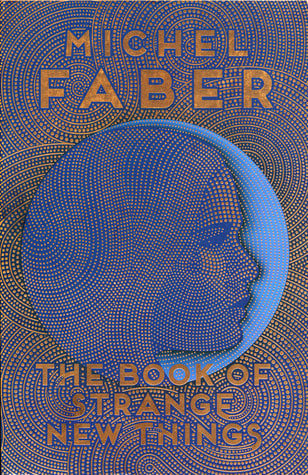
The stuff works like a drug, I’m serious, don’t turn the first page unless you fully intend to turn the last one twenty-four hours later, unfed and parched, sitting or standing in the exact same spot.
The Book of Strange New Things addresses two themes, namely: Religion and space tourism. Had to do a double-take there, didn’t you?
Well, if you thought that the pairing of these two concepts was out of this world (horrendous pun fully intended, forgive me), think again because once more, Faber is being defiantly unclassifiable.
The plot — humourous and galactic
The book tells the story of Peter Leigh, an intergalactic missionary sent to an outpost on the planet of Oasis, a place with an almost religious sense of order and serenity. His plan: to deliver the word of God to every corner of his galaxy.
The Oasians are more than happy to welcome him, in exchange for drugs and the Bible. Charming, I know. The bible has been coined “book of strange new things”, hence the title.
Faber’s hilariously crude way of describing the Oasians’ childlike simplicity will absolutely slap you in the face on multiple occasions, my favourite being the moment Peter whips out a photo of his cat.
I don’t know what I was expecting, but the Oasians go on to ask if the cat is a Christian. They then proceed to condemn it to death for not following the preachings of Jesus. Sounds like an intergalactic cult, if you ask me. Would I join? Absolutely.
Why you should read it
As I said, Faber is not the place to be taking yourself too seriously. You’ll hate loving it and you’ll hate putting it down even more.
I’d suggest you give in and enjoy the ridiculous ride, because one thing is clear: the fabulous Mr Faber is, respectfully, a man of sickeningly great literary talent.
Of course, there are many more great Dutch reads out there, but we hope you enjoy this handsome little introduction to contemporary Dutch literature. Happy reading!
Do you have any Dutch book recommendations? Tell us in the comments below!






